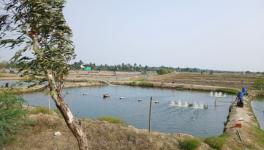Bengal: Lack of Safety Measures Key Reason for Worker Deaths in Bankura Factory Accidents
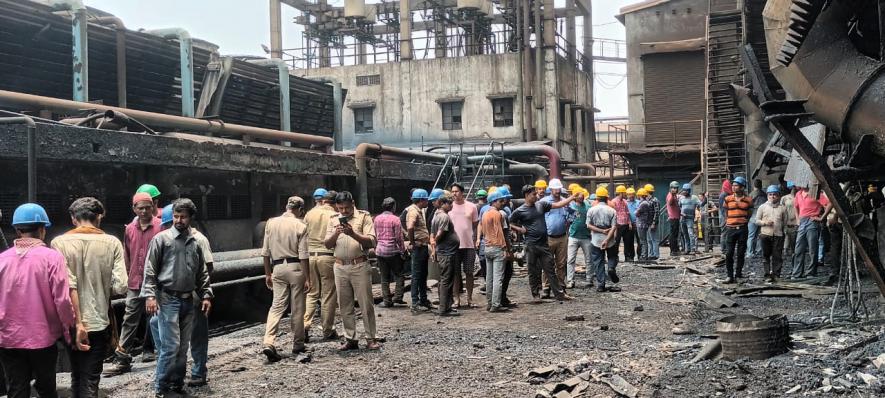
An accident happened on May 39 in Barjora BDG Metal and Ltd due to a lack of safety.
Like any other day, on the morning of May 30, the workers were busy with work inside the factory. Suddenly, several tonnes of hot liquid iron fell on them. Before they could act, 17 workers were burnt by the molten iron; another three died over the next four days. Five are currently critically injured.
This tragic incident occurred at BDG Power and Metal Limited factory in Barjora industrial complex, Bankura district. It is alleged that lack of safety measures caused the accident.
This is not an isolated incident; more than 40 workers have lost their lives in factories in the Barjora, Mejia, and Gangajalghati regions of the Bankura district in the past 10 years due to lack of safety in the workplace. Those who died in the accident were contract labourers, mostly migrants. The factory authorities closed this chapter with a small compensation. But till now, factory authorities and administration have been silent on ensuring workers' safety.
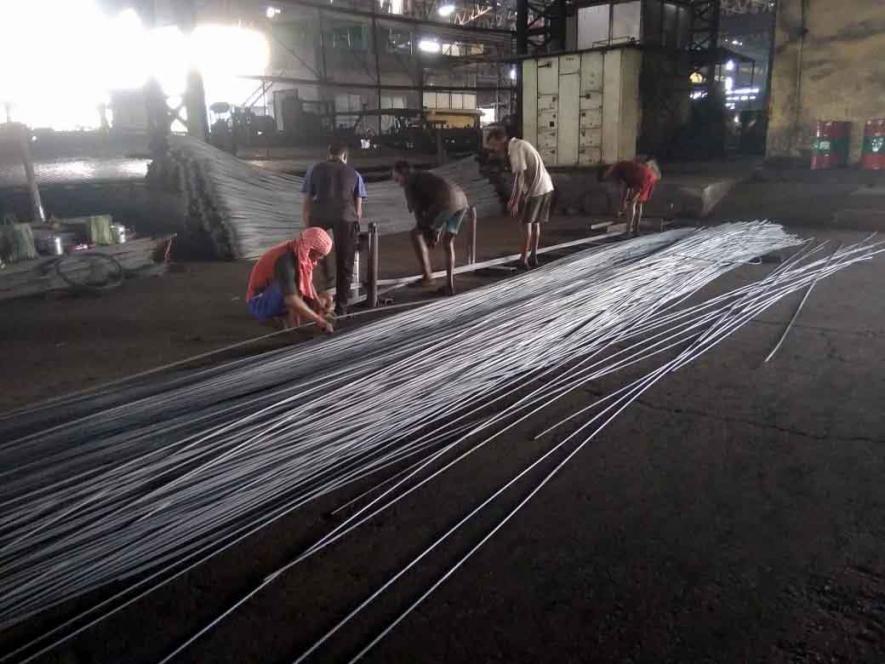
Workers have to work this way without safety.
In 2001, an initiative was taken to develop industrial zones on the southern side of the Durgapur Damodar Valley Corporation (DVC) Barrage at Barjora. Simultaneously, industrial areas like Mejia and Gangajalghati were built near Raniganj. From getting the land to building infrastructure, the three-tier panchayat and Bankura district administrations fully cooperated with private entrepreneurs who set up the industry.
"The people of Barjora, Mejia, and Gangajalghati also came forward to help. There was no dissatisfaction anywhere regarding the availability of land for industry," Mahadeb Singha, a CITU (Centre of Indian Trade Unions) leader and former Chairman of the standing committee of small-scale industry and electricity of Bankura Zila Parishad, told this writer.
In the 1950s, the industrial area started in Durgapur with the construction of the Durgapur Steel Plant (DSP). For further expansion of the industrial zone and irrigation facility, DVC constructed a reservoir on Damodar river. Using this reservoir, multiple industries were developed in Durgapur.
Between 2002-2005, as many as 63 factories were built in north Bankura. Among these, 54 factories are located in Barjora. The rest are in Mejia and Gangajalghati. A significant part of these factories dealt with sponge iron and ferro alloy.
"The government built two power substations at Barjora for powering factories, and water was provided from Damodar river. Around 25,000 people were directly employed in these three areas. Another 15,000 people were indirectly involved in the factories for their livelihood. About 20,000 people used to work in Barjora alone," Baneswar Gupto, convener of CITU Barjora block, told this writer, adding, "after dusk, the lights of Barjora used to be seen shining in the sky from the Durgapur barrage."
Widespread contamination in sponge iron, ferro alloy units
"Pollution was widespread at that time. Initially, people started protesting at the call of Krishak Seva and CITU. As a result of people's agitation and administrative intervention, electrostatic precipitator (ESP) machines were installed to control pollution in factories. It was also closely monitored from the state-level. Ultimately, the rate of pollution was reduced. The safety of factory workers was taken seriously. The labour department, district and block administration visited the factories regularly. They used to talk to managements and workers," Ananda Ghose, a worker at Barjora BDG sponge iron factory, said.
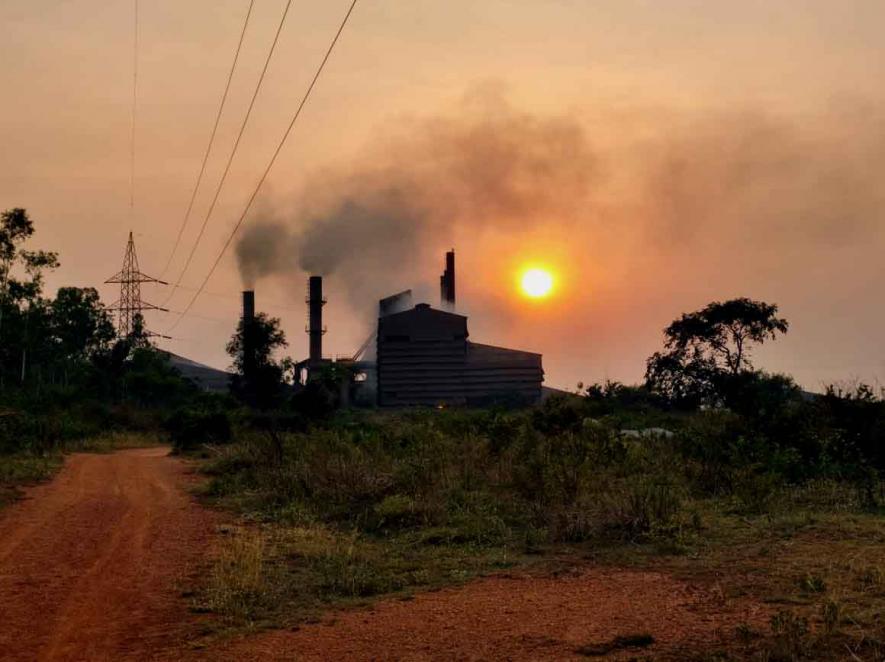
Pollution is spreading from Barjora industries
Workers allege that the system changed after Trinamool Congress (TMC) came to power in 2011.
With the support of the ruling party and the ‘mysterious’ silence of the administration, the factory authorities started activities as they wished. Allegedly, the management continues to satisfy several groups of the ruling party in various ways, including financially.
As a result, the conditions have deteriorated. There are only 18 factories now, employing around 7,000 workers (primarily contractual).
In response to why 35 factories were closed in the past 10 years, a general manager of a closed factory, who did not want to be named, told this writer, "First, the market demand for sponge iron and ferro has decreased. Second, some factory owners did not repay bank loans. After closing the existing factory, they opened a new one in another place. After changing the company's name, bank loans can be taken in the new company's name. The old company was declared bankrupt. Apart from this, the owners had to pay money regularly to several political leaders. Many factory authorities could not continue it, forcing them to shut down."
Closed Factories, Jobless Workers
Thousands of workers became jobless as factories closed down one after other. At the time of the shutdown, the workers were not paid their dues, including salary, arrears, provident fund, etc.
Some workers could not cope with financial distress. Nilu Aaich, a former factory worker, allegedly died by suicide. Rohit Banerjee, another worker, also allegedly died by suicide along with his wife.
"We have repeatedly informed the district administration, labour department, and even the Chief Minister, urging them to take measures to settle our dues and open the factory. But no demand has been accepted. On the call of CITU, the jobless workers have organised several agitations on this demand; promises have only been made, nothing has been done," Bhajan Singha, a worker who lost his job, told this writer.
Singha further said that after being closed for 10 years, the Govinda Impax factory in Barjora was recently reopened by another owner.
"All those who used to work there earlier were not re-hired, and new people were appointed at the direction of the ruling party. The factory authorities were ultimately compelled to employ some former workers due to a movement by CITU," he added.
The ‘collusion’ between the factory owners and the ruling party has meant that the former does not follow mandatory rules. For instance, ESP machines, which prevent pollution, are not being used on the pretext of using a lot of electricity. This has caused increased air pollution in Barjora. The air quality has worsened. In addition to crop damage, there has also been an increase in lung and skin diseases.
Doctors at Barjora Super Speciality Hospital told this writer that among the patients who come every day, many suffer from lung diseases like asthma.
Most of all, safety negligence is observed in the factories. Gloves, helmets, soaps, and sanitisers are not often given to the workers. The burning furnaces in which they work, risking their lives, are not regularly inspected. Due to this lack of safety, several workers have died.
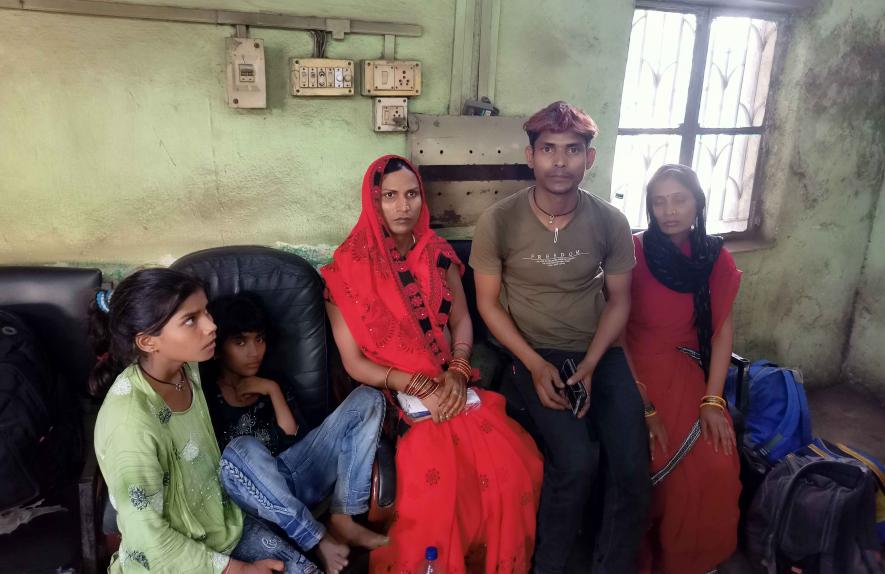
The family of labourer Aabhikaran came from UP to Barjora.
Tarun Raj, a CITU leader in Barjora, said no one complains about workers' deaths because most are brought from outside.
"On the advice of TMC leaders, the management settles the matter by giving only nominal compensation. At various times, CITU fought to get proper compensation for the families of dead workers," he said.
Even in the May 30 incident, the management called the TMC leaders to discuss the compensation amount.
Another shocking allegation is related to the number of deaths. Some people allege that the factory authorities are hiding the list of dead workers. The family of a worker, Abhikaran, claimed that he died in the accident. The factory authorities denied their claim.
The writer covers the Jungle Mahal region for ‘Ganashakti’ newspaper in West Bengal. The views are personal.
Get the latest reports & analysis with people's perspective on Protests, movements & deep analytical videos, discussions of the current affairs in your Telegram app. Subscribe to NewsClick's Telegram channel & get Real-Time updates on stories, as they get published on our website.









